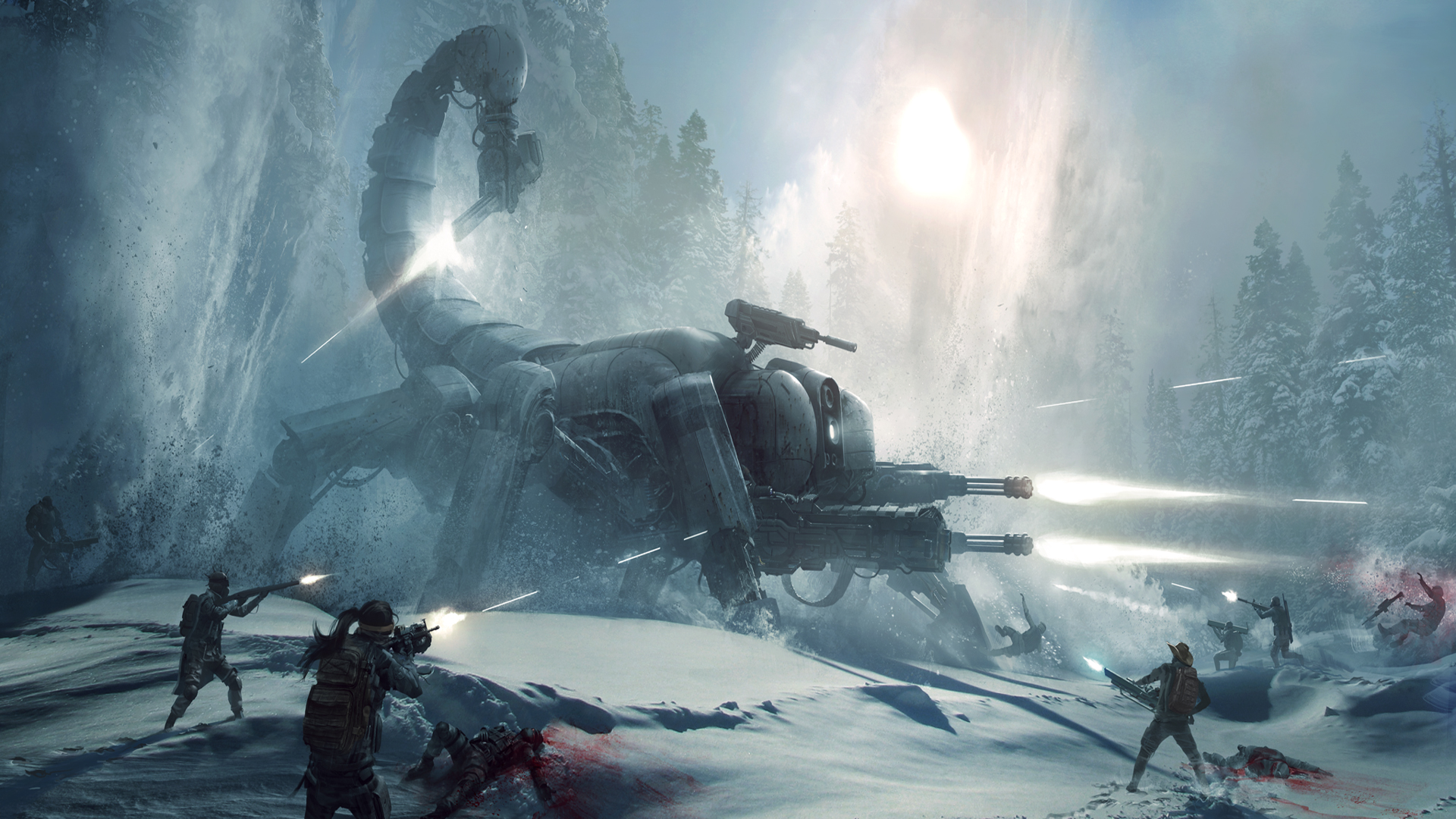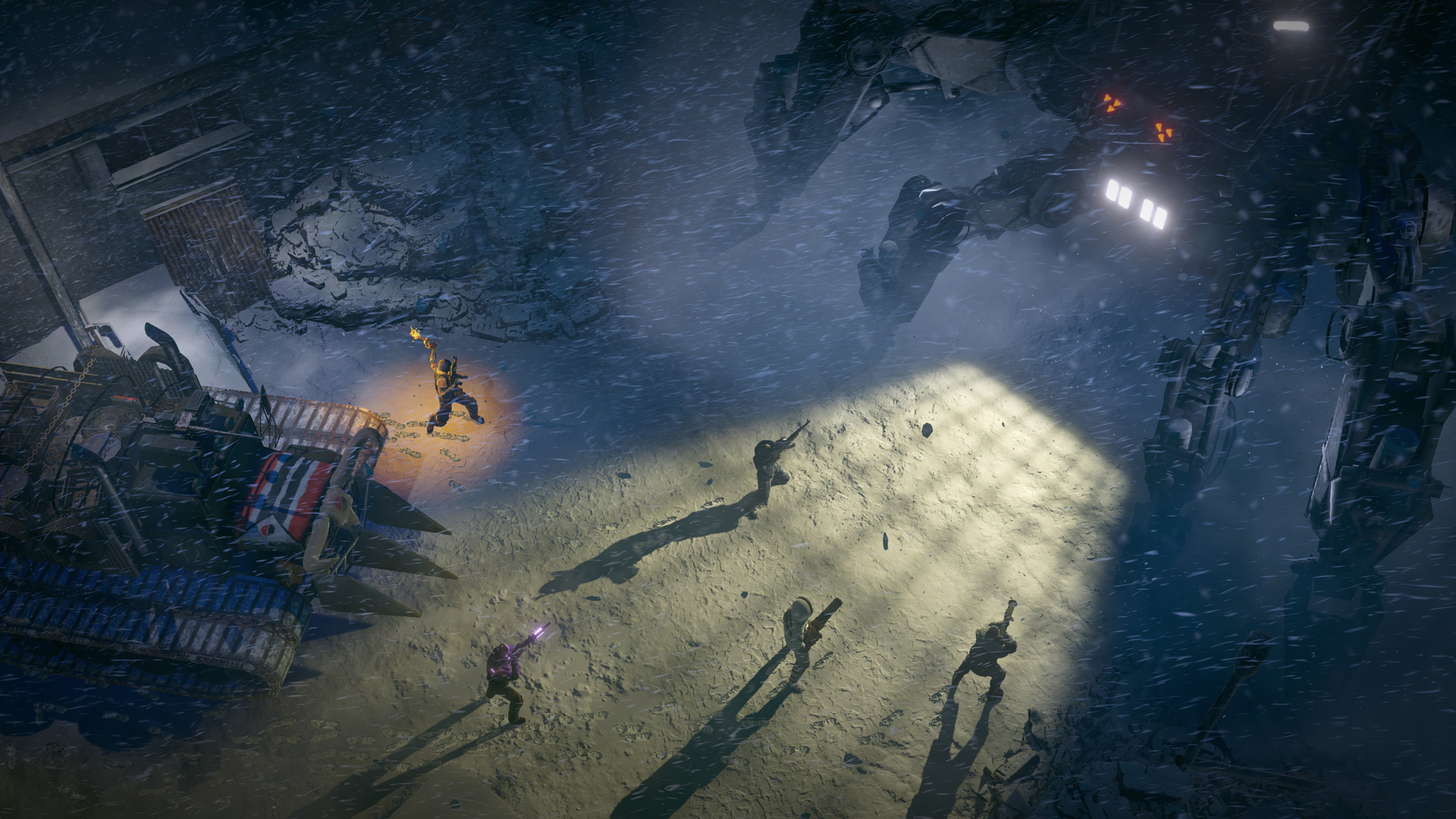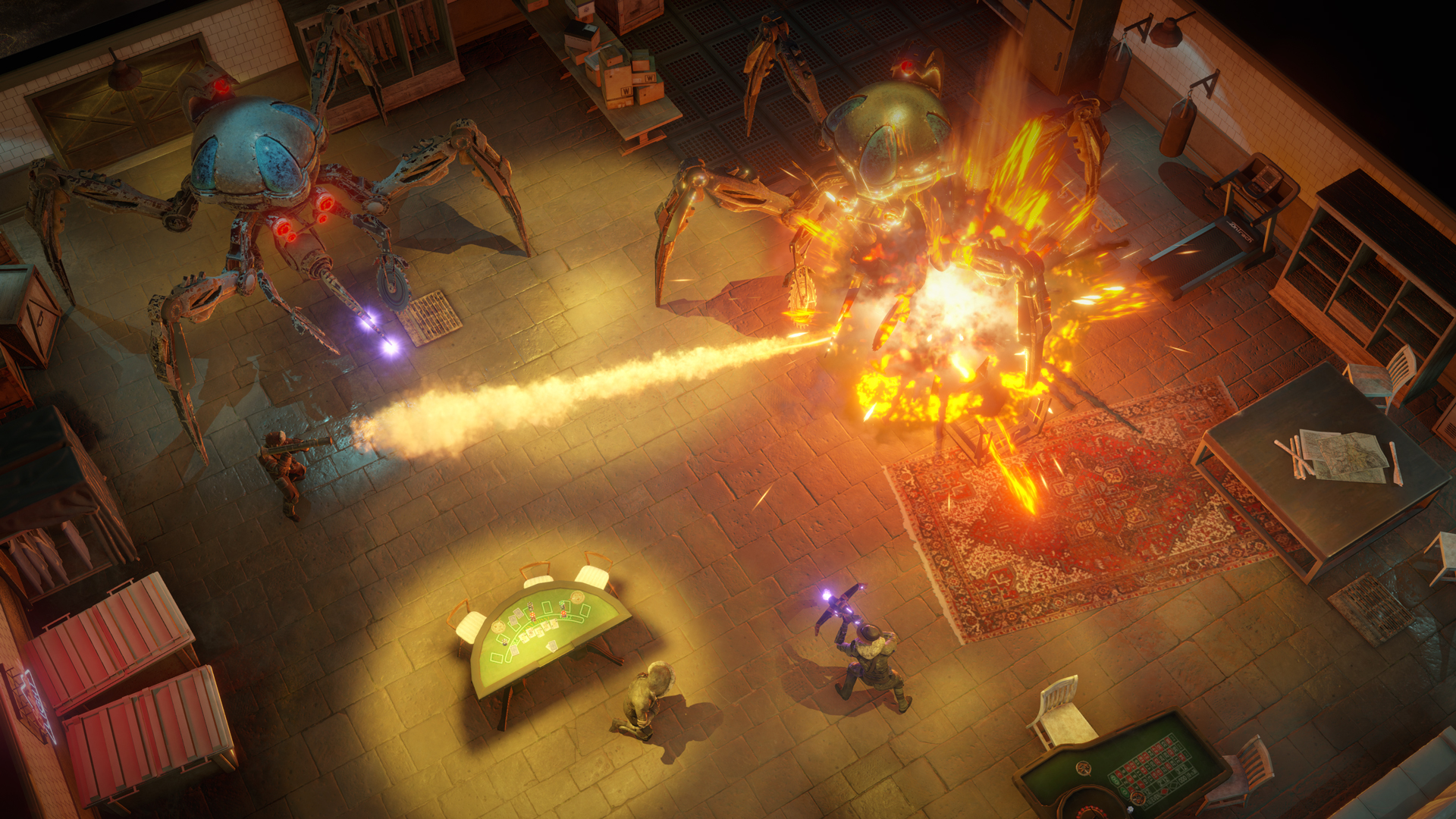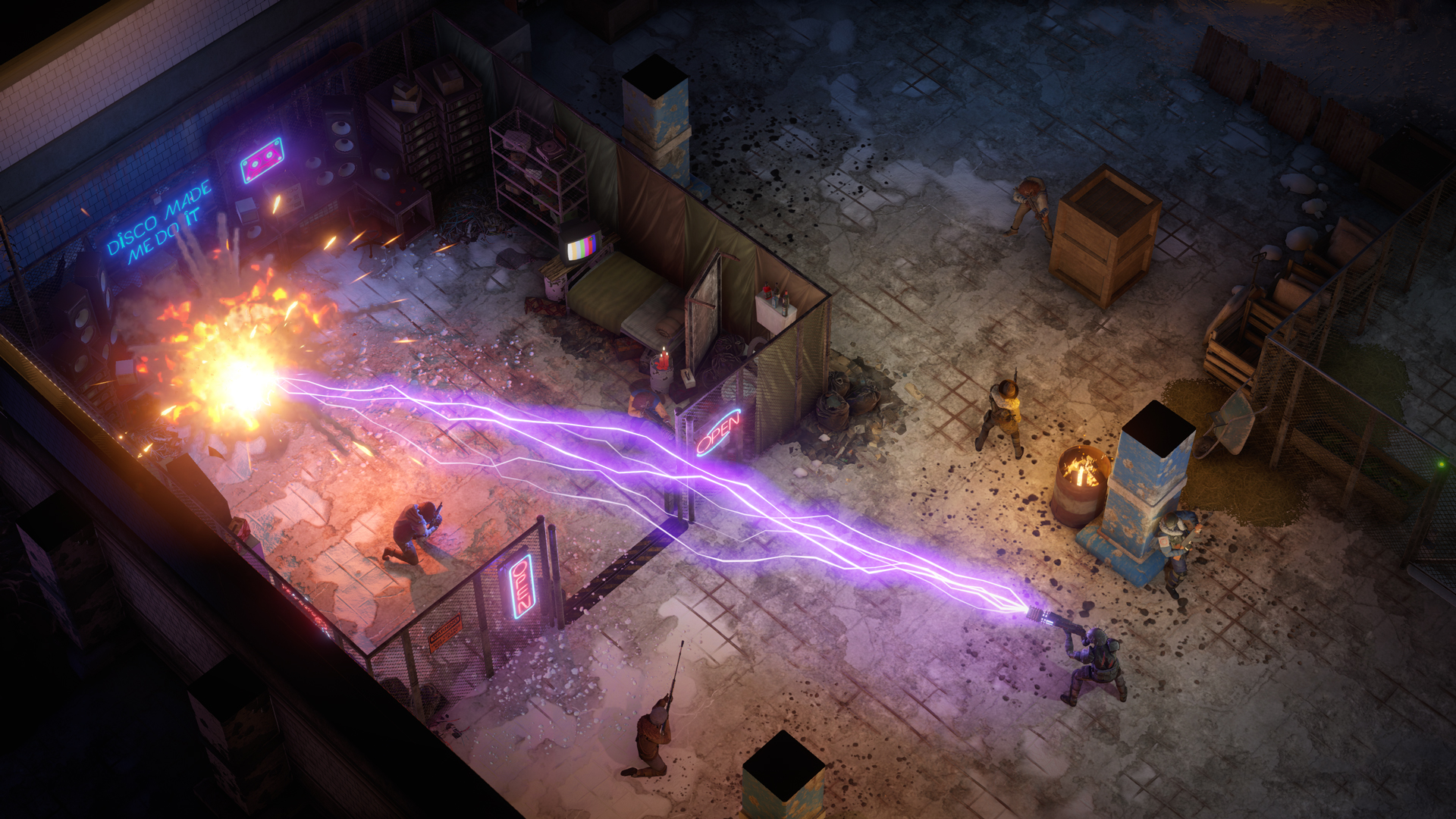
What impact will Microsoft have on the renaissance of the cRPG? That's a question that many have been unable – or otherwise unwilling – to confront for some time now. With Wasteland 3 set to launch of May 19, 2020, that question will be answered one way or the other.
The reason this has even became a topic of conversation is largely down to Microsoft acquiring InXile Entertainment back in November 2018. It was a move that left many worried that the publisher would interfere with InXile's innate ability to craft a particular (and rather niche) style of RPGs.
This is, after all, the team that gave us Wasteland 2, Torment: Tides of Numenera, and The Bard's Tale 4: Barrow's Deep – funded by fans through Kickstarter and Fig, it was able to move autonomously, seemingly unconcerned by what others in the broader RPG scene were doing. It's the studio founded by veterans of Interplay Productions, the studio that introduced children of the '80s to Fallout and Wasteland, and helped facilitate the evolution of the cRPG genre through the likes of Planescape: Torment, Baldur's Gate, and Icewind Dale. The last thing we need right now is for Xbox to stroll in and start interfering with a group of talented developers that are known for making niche games that are the result of a time warp, right?
As it should happen, that's exactly what Xbox has done; but not in the way that you might expect. "Microsoft basically came in, gave us a tonne of cash, and said go and make the best game that you possibly can," Brian Fargo, founder of inXile Entertainment, tells me before I get my hands on a new build of Wasteland 3. Fargo is laughing as he says this to me and I think I know why – Fargo knows that he's really got something special on his hands this time.
The return of the king

Not that Wasteland 3 wouldn't have been special without the support of Microsoft. It's just that with an influx of personnel, support, and resources that have flooded into InXile since November, the studio has been able to elevate the scope of Wasteland 3 beyond its wildest dreams – or, at least, beyond that which would have previously been possible. The game looks stunning, for starters; set in the freezing wastelands of Colorado, we finally get a post-apocalyptic game set in snowy alpines rather than desert expanses. The UI has been redesigned along with the character management and inventory systems (now shared among all of those in your party), in an instant exorcising the demons that plagued its predecessor. Combat too has been overhauled, feeling easier to manage and more intuitive – the wickedly fast turn-based combat making X-COM's action feel tame by comparison.
Fargo is keen to note that it isn't just the money that has made the difference here – although it certainly helps – it's something more invaluable than raw cash flow alone: InXile has been given time. "It's always the elephant in the room with game development, time. When you speak to the best developers in the industry – whether it is Rockstar or Blizzard – the biggest factor is always time. It's the same across the group, it's always time, time, time," Fargo tells me, explaining that for studios the size of InXile any amount of added time can make a world of difference. "We think a certain way about development and we are run very tightly as a result. We're not looking for three to six extra years, but three to six months. For a group like us, that can be night and day. Six months can make all the difference; six months could be a '10 on Metacritic' change for us."
The small delay to May 19, 2020 out of Winter 2019 means that Wasteland 3, a game that would have been otherwise nearing completion, is now seeing some huge quality of life changes being introduced to play that undoubtedly make it better than it was before. "The nice thing for InXile is that Microsoft hasn't changed what game we are making at all," Tim Campbell tells me, Wasteland 3's game director. "That is what some people I think were afraid of when they read about the acquisition. But really, Microsoft is just helping us do what we do but better, right?"
Sign up to the GamesRadar+ Newsletter
Weekly digests, tales from the communities you love, and more
A voice in the wasteland

The most noticeable of these changes comes by way of the addition of voice-acting. Wasteland 2 was heavily praised because of its writing, it was a sharply penned RPG that brought a world defined by its quirks and dark humour to life. That's still at the heart of Wasteland 3, only now it has been vocalised – something that simply wouldn't have been possible before, as InXile worked with a modest budget and development timeframe. "We have hundreds of thousands of lines of dialogue in this game. That's not something... we wouldn't have had the physical resources to be able to voice all of that at all without Microsoft," Campbell continues. "Microsoft has come in and just made Wasteland 3 better. And that's an easy thing that I can point to, right, but it has been across the board."
"Microsoft has just been saying, 'do what you do, and do it better than before.' They don't want to change this game. They want InXile to be quirky and unique; they want Wasteland 3 to have dark humour, they just want to make it a better game – it's been really exciting to be involved in."
You can sense that when you play it – something early backers of Wasteland 3's original Fig crowdfunding campaign can do right now. The cinematic conversations and voice acting help bring new life to the world InXile has created, but it's the improvements to control, movement, and presentation that make you want to stay there. The overworld map is freaking gorgeous, while the menus and UI seems impossibly intuitive to navigate and use; InXile has learned a few lessons from Wasteland 2, and you absolutely see that reflected here.

It's also because InXile has been able to utilise departments within Microsoft to further smooth out the wrinkles in development. It's worth remembering that, up until November, this was to be a game published solely by Deep Silver – Wasteland 3 isn't an Xbox One exclusive, far from it – and yet the game is able to improve because of the company's involvement. "It goes beyond more time and resources, right?" Fargo continues. "Microsoft has a user research lab, which is going to give us feedback on the UI and what people are experiencing. And they have their localisation groups and their QA groups… I could go on, but you have to understand that it is allowing us to make a more robust product. Wasteland 3 players are going to get something much better than we could have done with just our limited resources."
If you find yourself lamenting the direction that Bethesda has taken Fallout in with Fallout 4 and Fallout 76 – a route that is almost unrecognisable to where the series first started – then maybe you should give Wasteland 3 a try. You needn't play the two previous games to have a good time, you just need to keep an open mind. The truth of the matter is that when it comes to Bethesda's RPGs, the charm and the quirks are gone, the depth and the detail sacrificed, and the character of the world is as bland as the colour palette overlaid on top of it. This would be difficult for me to reconcile with, were it not for Wasteland 3 off on the near horizon. It's a game that is decidedly old-school in its ethos, created with the sort of technology and budget that would have been unfathomable in 1988. This is the return of the king, the series that started it all with a sequel in better shape than I could ever have dared to dream it could be.

Josh West is the Editor-in-Chief of GamesRadar+. He has over 15 years experience in online and print journalism, and holds a BA (Hons) in Journalism and Feature Writing. Prior to starting his current position, Josh has served as GR+'s Features Editor and Deputy Editor of games™ magazine, and has freelanced for numerous publications including 3D Artist, Edge magazine, iCreate, Metal Hammer, Play, Retro Gamer, and SFX. Additionally, he has appeared on the BBC and ITV to provide expert comment, written for Scholastic books, edited a book for Hachette, and worked as the Assistant Producer of the Future Games Show. In his spare time, Josh likes to play bass guitar and video games. Years ago, he was in a few movies and TV shows that you've definitely seen but will never be able to spot him in.


